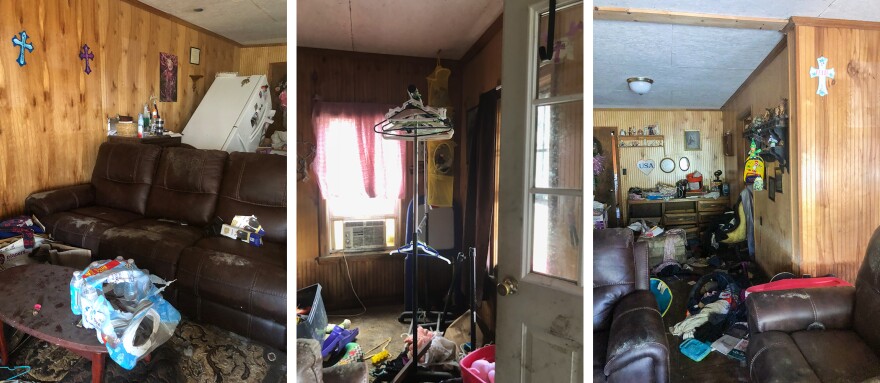In the waters of the North Atlantic, including the area where most hurricanes form, temperatures have climbed to near levels typically seen during July. In addition, a La Niña weather pattern could emerge later this year.
Hurricane season is still more than three months away, and by themselves, the warmer waters are no guarantee of a severe hurricane season.
But Erik Heden with the National Weather Service in Newport/Morehead City said they do skew the odds in favor of a more active one.
"One important thing to remember, weather is like a cake or brownie recipe. You need all the ingredients to come together perfectly and the warm water is just the eggs in our brownie recipe. So yes, we have that ingredient,” he said, “Yes, that's concerning because warm water can help form hurricanes and stronger hurricanes, but you need those other ingredients to come together, too, so not necessarily just warm water means we're going to have an active season or not, but it is one ingredient that's already in the mix.”

An El Niño climate pattern emerged last spring, and typically creates conditions that tend to inhibit Atlantic cyclone formation but there is increasing likelihood that a La Niña pattern will replace El Niño by late summer or early fall. Heden said that’s another ingredient.
"El Niño, La Niña. What does it mean for me?” He e said, “Traditionally, a La Niña year would tend to favor more hurricanes in the Atlantic Ocean, so you've got your warm water that would be favorable, potential for La Niña would be favorable. So, those are two of those ingredients we'll be watching for hurricane season and right now, they're both pointing toward potentially a more active season.”
The six-month official hurricane season was established in 1965 by the National Hurricane Center, and with three months to go it’s a little unusual to be talking about it already.
Colorado State University will release its prediction of the season on April 4, and the National Hurricane Center will announce its verdict in May.
Heden said, “A lot can change, but we're pretty confident in terms of what's going to happen with that transition to at least the neutral, if not La Niña, year. The other thing is, it's February and regardless of what actually happens, we really want people to be prepared no matter what the forecast is. Hurricane season starts June 1st. But we've had storms as early as May.”
Still, Heden says it’s not too early to start getting prepared.
"We know what happens when a storm is on the horizon. We know what happens to the water at the stores and the gas at the gas stations we run out. So yes, it's much, much easier today to stock up on those canned goods and bottled water and things of that nature, but also the financial impact.
“I'm very blessed I can go out this weekend and get my hurricane kit if I needed to. Others in the community can't do that, but if you spread that out throughout the spring into the summer, that spreads out that financial impact. So, maybe this weekend you get your canned. Next month, you focus on bottled water. The third month, maybe you make sure your prescriptions are updated and everything's good with that. That spreads out that financial burden as well.”
What should be in that hurricane kit? Heden said, “Those disaster kits would be food, water, batteries. So, if power goes out and you can have a way to listen to the radio. Having cash on hand, that's something to definitely have because ATMs and things don't work when the electric electricity is out. Another one you may want to consider in the off season, getting an insurance checkup; flood insurance, a lot of types of insurance are not effective until a 30-day window, so you can't change your policy or get flood insurance with a storm on the horizon.”

After a few Nor’Easters impacted eastern North Carolina earlier this winter, he also says homeowners should take advantage of the warmer-than-usual weather to check their property out for any damage that may get worse if there is a hurricane.
Heden said, "It's a good time to strengthen your home or your property, taking down limbs, securing things on your home that might be a little loose from the winter winds. So, there's plenty that you can do in the off season before the season actually gets here.”
Twenty-one coastal counties in North Carolina have established evacuation zones to simplify the evacuation process, and Heden says people should Google “Know Your Zone” to learn how vulnerable their property may be in a disaster.

He also said it’s a good time to make a firm plan for where to go in an evacuation.
"You really should have a good idea if you're in a vulnerable location, where would you actually go? If it's going threatened and you were told to evacuate?” he said. “If you have pets, researching a hotel that takes pets. If you have family members in Maryland or Virginia, talking to them now about staying with them during a storm. It's great to have a plan on a funny February 21st day so that, when the storm arrives, you just know how to enact it and you can act on the plan itself.”



